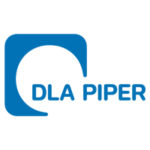-
What international conventions, treaties or other arrangements apply to the enforcement of foreign judgments in your jurisdiction and in what circumstances do they apply?
Luxembourg is a contracting party to a number of conventions and treaties. Amongst them, the most frequently used are the:
- European Union instruments, including:
The Regulation (EC) 44/2001 on jurisdiction and the recognition and enforcement of judgments in civil and commercial matters (“Brussels I”) shall continue to apply to judgments given in legal proceedings instituted, to authentic instruments formally drawn up or registered and to court settlements approved or concluded before 10 January 2015 which fall within the scope of that Regulation.
The Regulation (EU) 1215/2012 on jurisdiction and the recognition and enforcement of judgments in civil and commercial matters (“Brussels I Recast”) which abolished the need for a certificate of enforceability for any judgment issued in another Member State, and applies as from 10 January 2015.
The transition period during which nearly all of the EU law continued to be applicable to the United Kingdom, ended on 31 December 2021. Thus, judgments rendered by English courts referring to court proceedings initiated after this date, are not covered by Brussels I Recast. They may be enforced according to other conventions to which both Luxembourg and the United Kingdom are parties, or in accordance with the Luxembourg national procedural law.
The Regulation (EC) 861/2007 establishing a European small claims procedure (“Small Claims Regulation”). A judgment in an EU member state benefiting from this regulation will be recognized and enforceable in another EU member state, without the need for a declaration of enforceability and without any possibility to oppose recognition.
- Other international instruments, including:
The Convention of 30 October 2007 on jurisdiction and the recognition and enforcement of judgments in civil and commercial matters (the “2007 Lugano Convention”) applicable to the European Free Trade Association (“EFTA”). This convention replaces the Lugano Convention of 16 September 1988 on jurisdiction and the enforcement of judgments in civil and commercial matters. Foreign judgments subject to the Lugano 2007 Convention are subject to simplified exequatur formalities. This convention applies to Iceland, Liechtenstein, Norway and Switzerland, and contains provisions which are very similar to Brussels I Recast.
The Hague Convention of 2 July 2019 on the Recognition and Enforcement of Foreign Judgments in Civil or Commercial Matters (the “ 2019 Hague Judgments Convention”) facilitates the effective international circulation of judgments in civil or commercial matters.
The Hague Convention of 30 June 2005 on Choice of Court Agreements (the “2005 Choice of Court Convention”) provides for certain provisions regarding the recognition and enforcement of a foreign judgment given by a court of a contracting state designated in an exclusive choice of court agreement.
-
What, if any, reservations has your jurisdiction made to such treaties?
Luxembourg has not made any reservations to the European Union or other international instruments mentioned above.
-
Can foreign judgments be enforced in your jurisdiction where there is not a convention or treaty or other arrangement, e.g. under the general law?
Yes. Enforcement of foreign judgments under the general domestic law (i.e. in the absence of an applicable treaty or convention) is subject to conditions provided at article 678 of the Luxembourg New Code of Civil Proceedings (“NCPC”) and articles 2123 and 2128 of the Luxembourg civil Code, and the applicable case law.
-
What basic criteria does a foreign judgment have to satisfy before it can be enforced in your jurisdiction? Is it limited to money judgments or does it extend to other forms of relief?
The applicable criteria depend on whether the foreign judgment creditor can avail itself of a convention or international instrument. If so, the conditions of enforcement are significantly simplified. In any event, irrespective of whether an international instrument or the general domestic law applies, the Luxembourg courts will not grant enforcement if the rights of the defense, due process, or public policy have been violated, in the foreign court proceedings.
When no convention or international instrument is applicable, a party seeking the exequatur of a foreign judgment in Luxembourg will need to satisfy several criteria, which concern both the form and the substance of the foreign judgment. The Luxembourg judge is called upon to verify the international legality (régularité internationale) of the foreign judgment. In summary, these criteria include:
- The foreign judgment must contain an order which can be executed. This includes, but is not limited to, monetary judgmentse. an order for a defendant to make payment. Other forms of final relief may be enforced such as specific performance (perform or refrain from performing a specific act).
- The foreign judgment must be enforceable in the foreign jurisdiction where it was issued. The foreign judgment creditor may submit a declaration from which it appears that the foreign judgment is enforceable in that jurisdiction. Thus, if exequatur proceedings are initiated in Luxembourg while a suspensive appeal is pending before the foreign court, the Luxembourg exequatur judge would reject the claim, or most likely suspend the case, pending a final determination abroad;
- The indirect international jurisdiction of the foreign court. There must be a clear link between (lien de rattachement caractérisé) the dispute and the court of origin. The exequatur would not be granted if the exequatur judge considers that it had exclusive jurisdiction over the dispute;
- The conformity to procedural international public policy (ordre public international de procédure). This control does not involve verifying the correct application of its procedural laws by the judge of origin, but rather verifying that the foreign decision has been rendered under the conditions of fairness and equity that Luxembourg procedural law seeks to ensure, in particular through the protection of the rights of the defense and the guarantee of a fair trial. These include due process, fair and genuine writs initiating proceedings, conduct of the proceedings, methods of proof, reasoning of the judgment, impartiality of the judge, etc., to ensure the absence of violation of any fundamental procedural principle.
- The conformity to substantive international public policy (ordre public international de fond), considered under its attenuated aspect (effet atténué de l’ordre public), since the foreign judgment does not seek to create new rights but rather to give effect in Luxembourg to rights acquired without fraud in a foreign jurisdiction.
- The absence of fraud. The Luxembourg exequatur judge may have to verify numerous critics made against the foreign judgment, as several things may have tainted the issuance of the foreign judgment (false statements, concealment of documents, corruption of witnesses, etc.), or if the parties have circumvented the rules normally applicable, notably as regards the internationally competent jurisdiction or the applicable law, in order to obtain indirectly abroad what they would not have been able to obtain directly in their jurisdiction of domicile. The aim is to ensure that rights under the foreign judgment were properly acquired abroad.
- The absence of contradiction between the foreign decision and a decision rendered in Luxembourg;
- The authenticity The requesting party will also need to demonstrate that the conditions of authenticity of the foreign judgment are met (for example by providing a certified copy);
- The translation The foreign judgment would need to be translated by a certified translator if it is not in French, German or Luxembourgish (although it may not be necessary to provide a translation of a foreign judgment if the Luxembourg judge understands the language, for example English). The Luxembourg Ministry of Justice provides a list of translators and interpreters who are sworn in before a chamber of the Supreme Court of Justice.
-
What is the procedure for enforcement of foreign judgments pursuant to such conventions, treaties or arrangements in your jurisdiction?
Certain instruments provide for the suppression of the exequatur procedure, such as Brussels I Recast and the Small Claims Regulation.
- Brussels I Recast: Judicial decisions in civil and commercial matters rendered in another Member State and enforceable in that Member State, which fall within the scope of Brussels I Recast, meet the conditions for recognition and enforcement in Luxembourg.
Such decisions shall be recognized and enforced in the manner provided for in Brussels I Recast. A declaration of enforceability is not required (article 39 of Brussels I Recast). A party who wishes to invoke in a Member State a judgment given in another Member State shall produce a copy of the judgment which satisfies the conditions necessary to establish its authenticity, and the certificate issued in accordance with article 53 of Brussels I Recast certifying that the judgment is enforceable in its country of origin.
The Luxembourg-based defendant may oppose the recognition and enforcement, or seek the suspension of enforcement, in accordance with article 685-4 NCPC, by application brought before the president of the district court sitting as in summary proceedings. This decision may be appealed before the Court of Appeal and may be further brought before the Supreme Court.
- Small Claims Regulation: it applies in cross-border litigation to civil and commercial matters where the claim does not exceed 2000 euros. This procedure intends to improve access to justice by simplifying cross-border small claims litigation and reducing costs. “Small claims” are cases concerning sums under EUR 2 000, excluding interest, expenses and disbursements (at the time when the claim form is received by the competent court).
Judgments delivered under this procedure are recognised and enforceable in the other Member States without the need for a declaration of enforceability. The procedure is optional, offered as an alternative to the possibilities existing under the national laws of the Member States. It is applicable from 1 January 2009 in all EU Member States, except Denmark.
The party seeking enforcement shall produce a copy of the judgment which satisfies the conditions necessary to establish its authenticity, and a copy of the certificate referred to in Article 20(2) and, where necessary, the translation thereof into the official language of the Member State of enforcement (article 21). The party seeking enforcement is not required to have an authorized representative or a postal address in the Member State of enforcement.
The Luxembourg-based defendant may oppose the recognition and enforcement, or seek the suspension of enforcement, in accordance with article 685-6 NCPC, by application brought before the president of the district court sitting as in summary proceedings. This decision may be appealed before the Court of Appeal and may be further brought before the Supreme Court.
Article 679 NCPC provides a non-exhaustive list of conventions. Foreign judgments falling within this scope must be submitted to simplified exequatur formalities to have legal effect in Luxembourg.
First, the foreign judgments must comply with the conditions specified in the relevant convention. For example:
- Under the 2007 Lugano Convention, a judgment shall not be recognized, for example, if it is contrary to Luxembourg public policy, if it was rendered in violation of due process, if it is irreconcilable with a Luxembourg judgment under the same parties or with a judgment in another State bound by the convention involving the same cause of action and between the same parties (article 34 and 35). A certificate of enforceability in the country of origin may be obtained in accordance article 54 and Annex V of the Lugano Convention 2007.
- Under the 2019 Hague Judgments Convention, a judgement shall be recognized only if it has effect in the State of origin, and shall be enforced only if it is enforceable in the State of origin (article 4). Recognition or enforcement may be postponed or refused if the judgment is the subject of review in the State of origin or if the time limit for seeking ordinary review has not expired (article 4). Under this regime, additional requirements apply and relate for example to the defendant’s place of residence in the State of origin, its consent to the jurisdiction of the court of origin, a connection with the contractual obligations, etc. (article 5)
Second, when the relevant conditions under the applicable convention are met, the exequatur may be granted pursuant to the procedure provided at articles 680 to 685 NCPC, which provide for a simplified exequatur:
- The requesting party submits an application to the President of the District Court, which decides on an ex parte basis (without the other party having to be informed of the application). The request may only be rejected if the foreign decision does not meet the conditions provided in the applicable convention. The Luxembourg exequatur judge may not conduct a review of the merits of the foreign decision (article 681 NCPC).
- When the foreign judgment concerns several requests, only some of which can be enforced in Luxembourg, the requesting party may request partial enforcement concerning only these requests (article 685 NCPC).
- The party against which enforcement is sought may appeal this decision before the Court of Appeal within one month of being served with the decision (or within two months if the appealing party is domiciled abroad). The appeal proceedings are adversarial proceedings following the standard civil written procedure. The decision rendered by the Court of Appeal may be further appealed before the Supreme Court (article 682 NCPC).
- The Court of Appeal may decide to suspend these appeal proceedings if the foreign judgment is subject to appeal proceedings in its country of origin, or if the time period to file an appeal has not passed (article 684 NCPC).
- During these appeal proceedings, nothing prevents the foreign judgment creditor from initiating enforcement measures on a conservatory basis (e.g. attaching assets belonging to the foreign judgment debtor), but no validation judgment may be rendered concerning the attached assets before the end of the appeal proceedings (article 684 NCPC).
- Should the exequatur request be refused by the President of the District Court, the requesting party may appeal the decision before the Court of Appeal, within one month of being notified of the rejection. The appeal proceedings are adversarial proceedings following the standard civil written procedure. The decision rendered by the Court of Appeal may be further appealed before the Supreme Court (article 683 NCPC).
-
If applicable, what is the procedure for enforcement of foreign judgments under the general law in your jurisdiction?
Luxembourg law distinguishes between recognition proceedings and enforcement proceedings. These are separate:
- Exequatur proceedings seek the recognition of the foreign judgment in Luxembourg. They are generally initiated when the foreign judgment creditor identified assets in Luxembourg belonging to the foreign judgment debtor, over which it will seek to take coercive measures.
When no convention or international instrument is applicable, foreign judgments will first need to be submitted to the exequatur procedure to be granted legal effect in Luxembourg. This requires commencing adversarial civil court proceedings before the district court (article 21 NCPC), and the appointment of local counsels.
The case proceeds according to the usual written rules of procedure. This involves exchanges of multiple briefs between the parties. After both parties have had a full opportunity to present their case, a date is set for oral pleadings, and a decision will be rendered, subject to appeal before the Court of Appeal (within 40 days of the first instance decision being served).
- Enforcement proceedings relate to coercive measures taken by the foreign judgment creditor over assets owned by the debtor and located in Luxembourg.
The conservatory phase of the enforcement (i.e. the attachment of assets on an conservatory basis) may be initiated at the same time as the exequatur proceedings, but the validation phase (the transfer of assets from the judgment debtor to the creditor) may only be ordered once the foreign judgment has been duly exequatured in Luxembourg and is not subject to further recourse. This presumes that the foreign judgment is enforceable in its country of origin.
-
What, if any, formal requirements do the courts of your jurisdiction impose upon foreign judgments before they can be enforced? For example, must the judgment be apostilled?
There are no formal requirements which must be met, other than the requirements of the applicable instrument. For example, these usually include proof of authenticity, and translation if the foreign decision is not in French, German or Luxembourgish (although any other language understood by the court, such as English, may be acceptable).
The Luxembourg courts do not require the foreign judgment to be apostilled. In the event that the exequatur judge has doubts as to the authenticity of a document, it can request it.
-
How long does it usually take to enforce or register a foreign judgment in your jurisdiction? Is there a summary procedure available?
Under Brussels I Recast, time and costs are meant to remain very low, as the procedure only requires that the foreign judgment creditor who wishes to invoke in a Member State a judgment given in another Member State produce a copy of the foreign judgment and the certificate of enforceability issued by the court of origin under article 53. There are no judicial proceedings as the court does not intervene to grant enforcement. However, once the foreign judgment has been served on the defendant and if this one challenges it in accordance with the provisions of 685-4 NCPC, the president of the Luxembourg court sitting as in summary proceedings may be called upon to render a decision to refuse the enforcement, subject to appeal before the Court of Appeal sitting as in summary proceedings, and cassation proceeding before the Court of cassation. In total, these proceedings can take several years.
When a convention provides for simplified exequatur proceedings, the requesting party may apply to the President of the District Court and obtain a decision on an ex parte basis within a few weeks. However, the party against which enforcement is sought may appeal this decision, giving rise to adversarial proceedings following the usual rules of civil written procedure, which may take several years.
Under the general regime (in the absence of a convention or international instrument), the exequatur proceedings are adversarial and follow the usual rules of civil written procedure, which may take several years subject to appeal. Generally, the time required to enforce a foreign decision depends on the efforts of the judgment debtor to resist.
-
Is it possible to obtain interim relief (e.g. an injunction to restrain disposal of assets) while the enforcement or registration procedure takes place?
A foreign judgment creditor may file conservatory attachments (saisie-arrêt) for example on the basis of a presidential authorisation obtained ex parte, while exequatur proceedings are pending. No security needs to be provided. Attachments result in the immediate freezing of the assets held by the attached third party for the benefit of the foreign judgment debtor. However, the attachments cannot be validated (i.e. the Luxembourg court will generally not order the transfer of the attached assets to the creditor, or the sale of these assets for its benefit), if suspensive recourses are pending against the title, in Luxembourg or abroad.
The Luxembourg-based defendant whose assets are attached may also seek injunctive relief from the summary judge, seeking to have the presidential authorisation retracted and/or the attachments lifted, in cases of urgency, if the requested measure cannot be seriously disputed, to prevent immediate damage or end a manifestly unlawful disturbance, on the basis of articles 932 and 933 NCPC. These decisions in principle do not decide on the substance of the case.
In cases where the preservation of evidence is at risk, a requesting party may also seek from the summary judge an order for the forced disclosure of documents (référé probatoire), if the documents are specifically identified (fishing expeditions are not allowed) and are relevant for future proceedings. The request must be legitimate and there must be no legal obstacle (e.g. legal rule, ethical principle or fundamental liberty) justifying the refusal (article 350 NCPC).
-
What is the limitation period for enforcing a foreign judgment in your jurisdiction?
There is in principle no rule under Luxembourg law imposing a limitation period to enforce a foreign judgment. However, the Luxembourg courts may only allow the recognition and enforcement of a foreign judgment which is enforceable in its country of origin. Thus, the applicable limitation period may depend on the law applicable in that country.
-
On what grounds can the enforcement of foreign judgments be challenged in your jurisdiction?
Each international instruments provide specific grounds to challenge enforcement. For example:
- Under Brussels I Recast, recognition and enforcement may be refused on very limited grounds. According to articles 45 and 46, recognition of a foreign judgment will be refused if it is manifestly contrary to public policy (under a restrictive conception of public policy), if the defendant was not properly served and that the foreign judgment was rendered by default, if the foreign judgment is irreconcilable with a judgment already rendered between the same parties in Luxembourg, or if the foreign judgment is irreconcilable with an earlier judgment involving the same cause of action and between the same parties and which meets the conditions for its recognition in Luxembourg. Recognition will also be denied if the foreign judgment involves certain specific subject matters.
- Under the 2007 Lugano Convention, recognition and enforcement may be refused on very limited grounds. According to article 34, recognition of a foreign judgment will be refused if it is manifestly contrary to public policy (under a restrictive conception of public policy), if the defendant was not properly served and that the foreign judgment was rendered by default, if the foreign judgment is irreconcilable with a judgment already rendered between the same parties in Luxembourg, or if the foreign judgment is irreconcilable with an earlier judgment involving the same cause of action and between the same parties and which meets the conditions for its recognition in Luxembourg. Recognition will also be denied if the foreign judgment involves certain specific subject matters.
Under the general domestic law, a party opposing the recognition of a foreign judgment, may argue that the criteria reviewed at question 4 above are not met, i.e. the foreign judgment contains an order which may not be executed in Luxembourg, the foreign judgment is not enforceable in its country of origin, the lack of indirect international jurisdiction of the foreign court, the foreign judgment does not comply with international public policy (substantive or procedural), the foreign judgment is tainted by fraud, there is a contradiction with an existing judgment rendered in Luxembourg, or the requirements of authenticity and translation if applicable, are not met.
-
Will the courts in your jurisdiction reconsider the merits of the judgment to be enforced?
In exercising his control, the Luxembourg exequatur judge is called upon to take into consideration not only the judgment submitted for exequatur itself, but all the elements extrinsic to this judgment, whether they are prior, concomitant or subsequent, in order to deduce, where appropriate, both the legality and the irregularity of the foreign judgment. As part of his review, the exequatur judge may not review the merits of what was judged by the foreign court, in the sense that he may not substitute his own assessments for those of the foreign judge. But while he is bound by the findings of fact made by the court of origin, the Luxembourg exequatur judge is not bound by the qualifications made in their regard by the court of origin: the Luxembourg exequatur judge may examine the factual elements necessary to the exercise of the regularity review, giving them the qualifications they require in the light of the review it must carry out.
The same logic generally applies in the case of international conventions. For example, article 8 of the 2005 Choice of Court Convention provides that there shall be no review of the merits of the judgment given by the court of origin, subject to such review as is necessary for the application of the relevant recognition and enforcement provisions of this convention. The Luxembourg court shall be bound by the findings of fact on which the court of origin based its jurisdiction, unless the judgment was given by default.
-
Will the courts in your jurisdiction examine whether the foreign court had jurisdiction over the defendant? If so, what criteria will they apply to this?
Under the general law regime (i.e. when no convention or international instrument is applicable), the Luxembourg court will not verify the personal jurisdiction or its subject matter jurisdiction of the foreign court.
Rather, the Luxembourg court will verify the indirect international jurisdiction of the foreign court over the dispute. This criterion does not call into question whether the court of origin had jurisdiction under its own rules of jurisdiction, or whether the court of origin had jurisdiction under Luxembourg’s rules of international jurisdiction, but rather whether there is a clear connection (lien de rattachement caractérisé) between the dispute and the jurisdiction which court was seized. This may be the case when the parties have accepted the jurisdiction of the foreign court, a contract was signed in this jurisdiction, a contract was executed in this jurisdiction, and no court proceedings on the merits were initiated elsewhere.
-
Do the courts in your jurisdiction impose any requirements on the way in which the defendant was served with the proceedings? Can foreign judgments in default be enforced?
The Luxembourg courts do not impose specific requirements on the way in which documents must have been served on the defendant in the foreign proceedings. However, the Luxembourg exequatur judge will review the conformity of the foreign judgment with procedural international public policy (ordre public international de procédure), and that the rights of the defense and guarantee of fair trial were respected. This includes proper service.
A foreign judgment rendered by default may be exequatured in Luxembourg insofar as it meets all criteria, including that it was rendered under the conditions of fairness and equity that Luxembourg procedural law seeks to ensure.
However, if the defendant was not served in a way that enabled it to assert its rights in the foreign court proceedings which resulted in a default judgment, the rights of the defense (principe du contradictoire) would not have been respected, in contravention to procedural international public policy. The Luxembourg exequatur judge would not grant the request the exequatur of such foreign judgment.
-
Do the courts in your jurisdiction have a discretion over whether or not to recognise foreign judgments?
The Luxembourg exequatur judge does not have discretion over whether or not to recognize foreign judgments. The scope of its powers and the extent of the review are strictly established by Luxembourg law and case law. The Luxembourg courts do not favourably or unfavourably treat foreign judgments on the basis of their country of origin (subject to the application of a convention or international instrument).
-
Are there any types of foreign judgment which cannot be enforced in your jurisdiction? For example can foreign judgments for punitive or multiple damages be enforced?
Anti-suit injunctions, judgments which are themselves a recognition of another foreign judgment (exequatur sur exequatur ne vaut), and declaratory judgments (resulting from an action seeking to have something found or confirmed by the foreign court, such as the interpretation of a contractual provision or the confirmation of a factual situation), in principle cannot be enforced in Luxembourg.
Foreign judgments awarding punitive or dissuasive (i.e. non-compensatory) damages are not enforceable in Luxembourg. The Luxembourg courts established that damages which clearly do not intend solely to compensate for civil loss, but also seek to dissuade and punish the responsible party, violate public policy.
However, the Luxembourg exequatur judge will not refuse to grant the exequatur on the sole basis that the amounts granted by the foreign court would be excessive. The Luxembourg courts have ruled that whether the amounts granted concerning multiple damages (damages, interests, and lawyers’ fees) are justified, relates to the merits of the case which cannot be re-examined by the exequatur judge.
A foreign judgment creditor may seek partial enforcement in Luxembourg under article 685 NCPC, when the foreign judgment is subject to the simplified exequatur formalities. The same applies with respect to foreign judgments subject to Brussels I (article 48 provides that an applicant may request a declaration of enforceability limited to parts of the judgment).
-
Can enforcement procedures be started in your jurisdiction if there is a pending appeal in the foreign jurisdiction?
Enforcement procedures may be initiated in Luxembourg by the foreign judgment creditor and attachments can be filed in order to attach assets on a conservatory basis, even if there is a suspensive appeal pending against the foreign judgment.
However, in most cases, the Luxembourg courts will order a stay of the proceedings pending resolution of the appeal proceedings in the foreign courts. The Luxembourg courts will not validate the attachments (i.e. transfer the attached assets to the debtor) until the foreign judgment is enforceable in its country of origin.
-
Can you appeal a decision recognising or enforcing a foreign judgment in your jurisdiction?
Yes.
- Under the simplified exequatur regime (e.g. the 2007 Lugano Convention or the 2019 Hague Judgments Convention), the party against which the enforcement in sought may appeal the ex parte decision before the Court of Appeal within one month of being served with the decision (or within two months if the appealing party is domiciled abroad). The appeal proceedings are adversarial proceedings following the standard civil written procedure. The decision rendered by the Court of Appeal may be further appealed before the Supreme Court (article 682 NCPC).
- Under the general domestic regime (i.e. in the absence of an applicable treaty or convention), a judgment which has granted recognition of a foreign judgment may be appealed before the Court of Appeal, and may be appealed further in cassation.
- At the enforcement stage in the context of proceedings seeking the validation of the attachments, judgments may also be appealed before the Court of Appeal. Such appeal is in principle suspensive and the foreign judgment creditor may only transfer the assets to its benefit if the Court of Appeal confirms the first instance judgment.
-
Can interest be claimed on the judgment sum in your jurisdiction? If so on what basis and at what rate?
The Luxembourg court will grant the exequatur on the basis of the amounts provided in the foreign judgment, including interest, for example if the foreign court awarded interest from the date of the foreign judgment until the date of payment of the debt.
In the case of Brussels I Recast, the certificate issued pursuant to article 53 contains the relevant information on the recoverable costs of the proceedings and the calculation of interest.
-
Do the courts of your jurisdiction require a foreign judgment to be converted into local currency for the purposes of enforcement?
Converting the amount of the foreign judgment in euros is not a requirement for the Luxembourg court to grant the exequatur, or to order the transfer of frozen assets. The competent authority may convert the outstanding amounts in euros.
-
Can the costs of enforcement (e.g. court costs, as well as the parties’ costs of instructing lawyers and other professionals) be recovered from the judgment debtor in your jurisdiction?
In general, both parties to proceedings seek the reimbursement of the procedural fees (indemnité de procédure) incurred on the basis of article 240 NCPC, on the ground that it would be inequitable for the winning party to bear all costs. Both parties usually also seek the reimbursements of other costs (frais, dépens) which may include bailiff costs, barristers’ fees (émoluments), etc.
In principle, each party shall bear its own legal fees, but legal fees incurred may constitute a prejudice which can be compensated for on the basis of the common civil liability regime (articles 1382 and 1383 of the civil code). Thus, each party may in principle request the reimbursement of its legal fees by reason of the conduct of the other party. The requesting party may allege that it was forced to incur legal costs by reason of the defending party’s fault (i.e. its refusal to comply with the foreign judgment).
With respects to both procedural costs and legal costs, Luxembourg courts usually only grant limited amounts.
-
Are third parties allowed to fund enforcement action in your jurisdiction? If so, are there any restrictions on this and can third party funders be made liable for the costs incurred by the other side?
There is no provision in Luxembourg law preventing recourse to third party funding. The Luxembourg district court recently ruled against a request for the forced production of a litigation funding agreement.
-
What do you think will be the most significant developments in the enforcement process in your jurisdiction in the next 5 years?
Luxembourg has adopted on 19 April 2023 a new Arbitration Law which provides for an efficient enforcement mechanism of foreign awards, strengthening the role of Luxembourg as an enforcement friendly jurisdiction.
Further to the end of the Brexit implementation period, Brussels I Recast and the 2005 Choice of Court Convention stopped applying to the United Kingdom. This left a gap to be filled with respect to the enforcement of these judgments in Luxembourg (and in other Member States). The United Kingdom has taken a number of steps in this respect:
- On 28 September 2020, the United Kingdom deposited its instrument of accession to the 2005 Convention to ensure that it continues independently its participation in the 2005 Convention from 1 January 2021.
- On 27 June 2024, the United Kingdom government ratified the 2019 Hague Judgments Convention, which will come into force for the United Kingdom on 1 July 2025. This provides a uniform framework for the recognition and enforcement of judgments between the United Kingdom and the other contracting states, including all EU member states except Denmark.
-
Has your country ratified the Hague Choice of Courts Convention 2005, and if so when did it (or will it) come into force? If not, do you expect it to in the foreseeable future?
Luxembourg is bound by the Choice of Courts Convention which entered into force on 1 October 2015 as a result of the approval by the European Union.
-
Has your country ratified the Hague Judgments Convention 2019, and if so when did it (or will it) come into force? If not, do you expect it to in the foreseeable future?
Luxembourg is bound by the Hague Judgments Convention which entered into force on 1 September 2023 as a result of the approval by the European Union.
Luxembourg: Enforcement of Judgments in Civil and Commercial Matters
This country-specific Q&A provides an overview of Enforcement of Judgments in Civil and Commercial Matters laws and regulations applicable in Luxembourg.
-
What international conventions, treaties or other arrangements apply to the enforcement of foreign judgments in your jurisdiction and in what circumstances do they apply?
-
What, if any, reservations has your jurisdiction made to such treaties?
-
Can foreign judgments be enforced in your jurisdiction where there is not a convention or treaty or other arrangement, e.g. under the general law?
-
What basic criteria does a foreign judgment have to satisfy before it can be enforced in your jurisdiction? Is it limited to money judgments or does it extend to other forms of relief?
-
What is the procedure for enforcement of foreign judgments pursuant to such conventions, treaties or arrangements in your jurisdiction?
-
If applicable, what is the procedure for enforcement of foreign judgments under the general law in your jurisdiction?
-
What, if any, formal requirements do the courts of your jurisdiction impose upon foreign judgments before they can be enforced? For example, must the judgment be apostilled?
-
How long does it usually take to enforce or register a foreign judgment in your jurisdiction? Is there a summary procedure available?
-
Is it possible to obtain interim relief (e.g. an injunction to restrain disposal of assets) while the enforcement or registration procedure takes place?
-
What is the limitation period for enforcing a foreign judgment in your jurisdiction?
-
On what grounds can the enforcement of foreign judgments be challenged in your jurisdiction?
-
Will the courts in your jurisdiction reconsider the merits of the judgment to be enforced?
-
Will the courts in your jurisdiction examine whether the foreign court had jurisdiction over the defendant? If so, what criteria will they apply to this?
-
Do the courts in your jurisdiction impose any requirements on the way in which the defendant was served with the proceedings? Can foreign judgments in default be enforced?
-
Do the courts in your jurisdiction have a discretion over whether or not to recognise foreign judgments?
-
Are there any types of foreign judgment which cannot be enforced in your jurisdiction? For example can foreign judgments for punitive or multiple damages be enforced?
-
Can enforcement procedures be started in your jurisdiction if there is a pending appeal in the foreign jurisdiction?
-
Can you appeal a decision recognising or enforcing a foreign judgment in your jurisdiction?
-
Can interest be claimed on the judgment sum in your jurisdiction? If so on what basis and at what rate?
-
Do the courts of your jurisdiction require a foreign judgment to be converted into local currency for the purposes of enforcement?
-
Can the costs of enforcement (e.g. court costs, as well as the parties’ costs of instructing lawyers and other professionals) be recovered from the judgment debtor in your jurisdiction?
-
Are third parties allowed to fund enforcement action in your jurisdiction? If so, are there any restrictions on this and can third party funders be made liable for the costs incurred by the other side?
-
What do you think will be the most significant developments in the enforcement process in your jurisdiction in the next 5 years?
-
Has your country ratified the Hague Choice of Courts Convention 2005, and if so when did it (or will it) come into force? If not, do you expect it to in the foreseeable future?
-
Has your country ratified the Hague Judgments Convention 2019, and if so when did it (or will it) come into force? If not, do you expect it to in the foreseeable future?




















